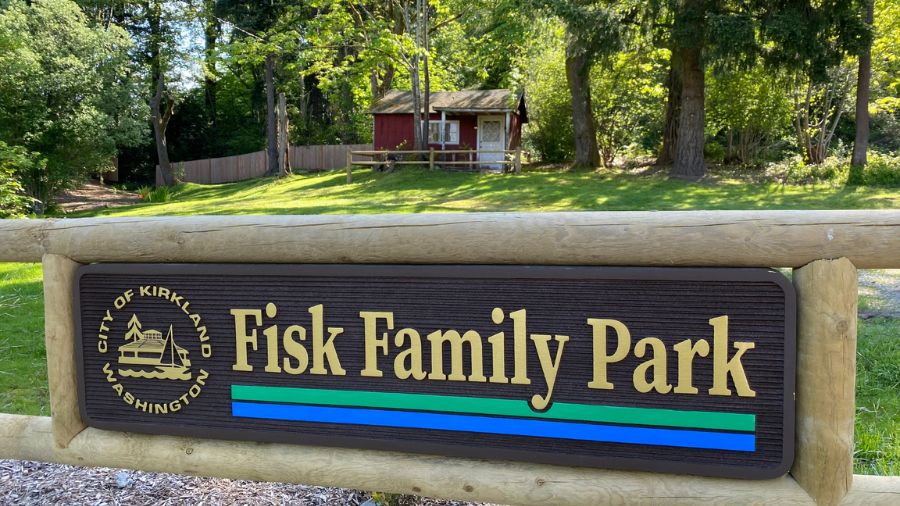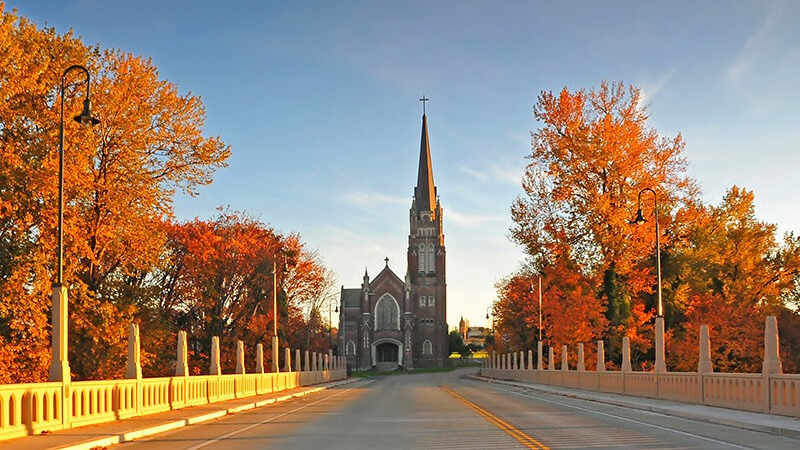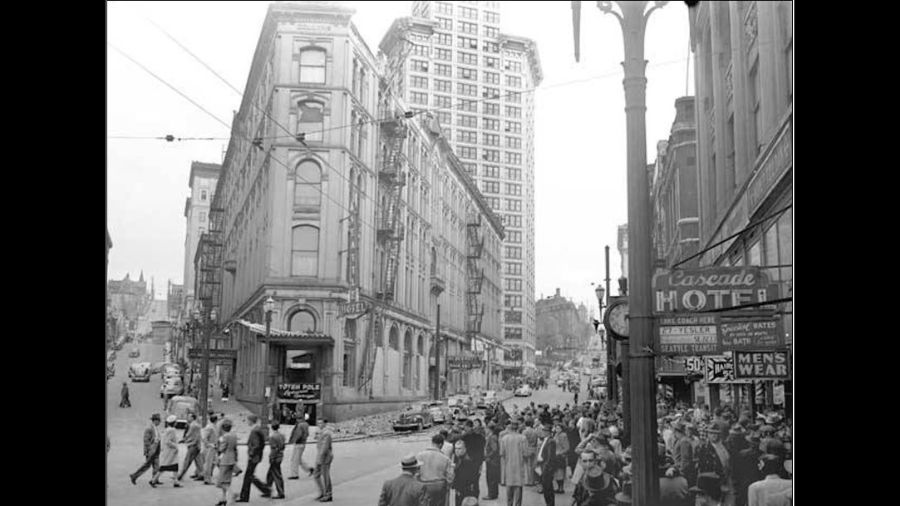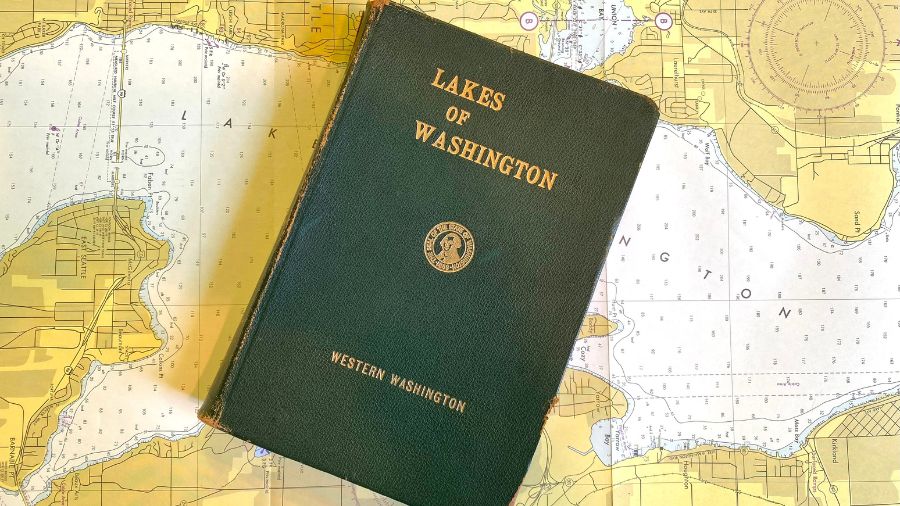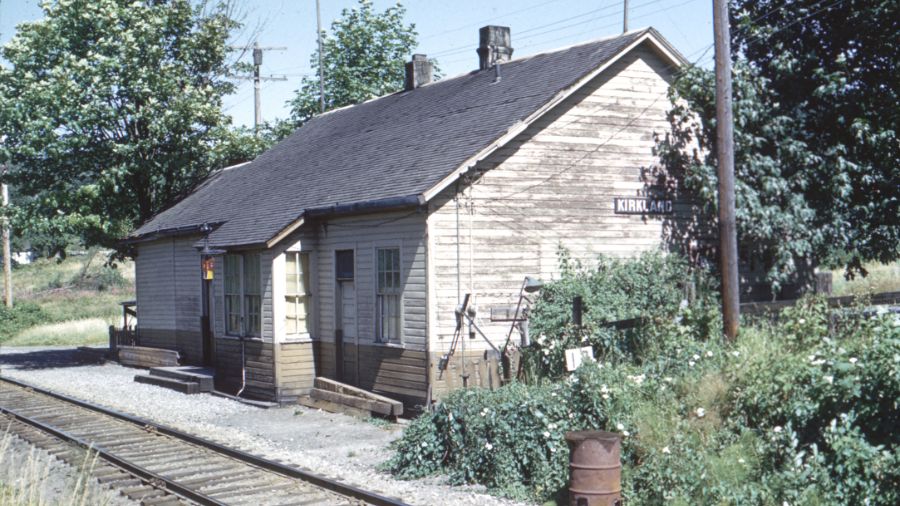Early World War II history repeats itself with Russia, Ukraine crisis
Feb 23, 2022, 9:49 AM | Updated: 12:32 pm
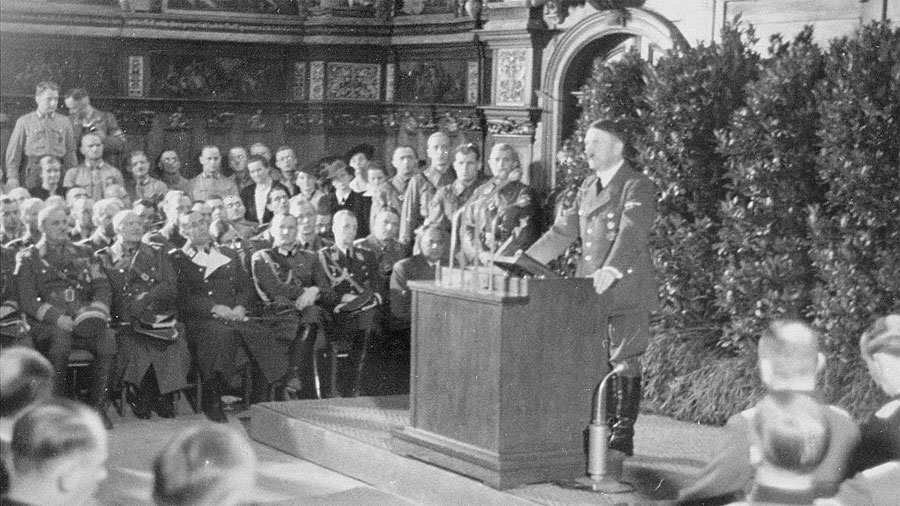
Adolf Hitler addresses an audience in Danzig in September of 1939. (National Archives and Records Administration, College Park)
(National Archives and Records Administration, College Park)
All of us today are too young to have any direct experience with the Europe of the late 1930s – and I don’t know how much of this is taught in high school and college history classes anymore. It’s family history for me, that both my parents lived through.
My dad was a 16-year old engineering student in September 1939 – just wrapping up a summer internship at a Polish Air Force Base. It came under aerial attack, as did his nearby family home, which burned down. He dug the blades from his hockey skates out of the ashes. In London, my mom was an 11-year old kid who got evacuated to the countryside and lived with a foster family who treated her as if she were their servant.
Before the United States entered World War II after the Japanese attack on Pearl Harbor, Europe had been at war for more than two years, and was in a run-up to war for most of the 1930s.
A guy named Neville Chamberlain always comes up in these times of diplomacy that precede a war. Chamberlain was Prime Minister of Great Britain, and he had the bad fortune of being in office when Hitler began actively moving beyond Germany’s borders.
Hitler’s first big territory grab was in March 1938 when Germany annexed Austria – what they called the Anschluss. The annexation was in violation of treaties and agreements, and it included a sham “plebiscite,” or a vote, among Austrians on the question of whether or not to be absorbed by Germany. This was all just 20 years after the end of World War I and the Treaty of Versailles, which penalized Germany for its aggression and created all kinds of new boundaries and new countries in Europe.
It was on that occasion of the Anschluss when Edward R. Murrow and William Shirer of CBS Radio organized the first live round-up of analysis from multiple European capitals – and KIRO Radio carried it, of course.
One of the speakers in this country was Democratic Senator Lewis B. Schwellenbach, from the great state of Washington, who did a pretty good job predicting the future for Hitler and Europe, warning that this was just the beginning, and that Hitler would continue grabbing territory.
Those predictions came true just six months later in September 1938. The lands Hitler wanted were three separate areas of ethnic Germans, German speaking people in Czechoslovakia – collectively called the Sudetenland, named after a mountain range.
Hitler proclaimed that territory was rightfully part of Germany in a speech at Nuremburg in mid-September. That began two weeks of shuttle diplomacy, with Prime Minister Neville Chamberlain flying back and forth between London and Germany.
Ross: Looking back on a time when Russians chose freedom over force
It all ended on Sept. 30, 1938, with Hitler’s assurance to Chamberlain that the land grabs would end with the Sudetenland, and Chamberlain said there would be “peace for our time.”
Some call Chamberlain an appeaser because of these negotiations, and that this was weakness that only encouraged Hitler to do more. Others say it bought Great Britain time to ramp up its military for the later inevitable conflict with the Nazis.
And, sure enough, the Nazis took the rest of Czechoslovakia in March 1939.
That summer of 1939, a Non-Aggression Pact was signed between Germany and the Soviet Union. Then the Nazis invaded Poland on Sept. 1, after a series of false flag operations by the Nazis to simulate Polish aggression.
A speech from Russia’s Vladimir Putin the other day reminded me so much of that, where he spoke of a shared culture and language with Ukraine regions, and a need to protect them.
And for that current crisis, the notion of solving it with diplomacy is starting to feel more impossible with each day, as Putin plays the part of the dictator who isn’t being truthful, and doesn’t have any real peaceful aims — he’s just simply grabbing territory.
It’s going to be bizarre to see how this actually rolls out over the next several weeks, but there are many eerie parallels to the early days of World War II. And while simply saying it’s the same situation can be a dangerous comparison to make, we can learn a lot about looking at Hitler’s actions in the late 1930s compared to what Putin is doing now.
You can hear Feliks every Wednesday and Friday morning on Seattle’s Morning News, read more from him here, and subscribe to The Resident Historian Podcast here. If you have a question or a story idea, please email Feliks here.
Follow @https://twitter.com/feliksbanel


